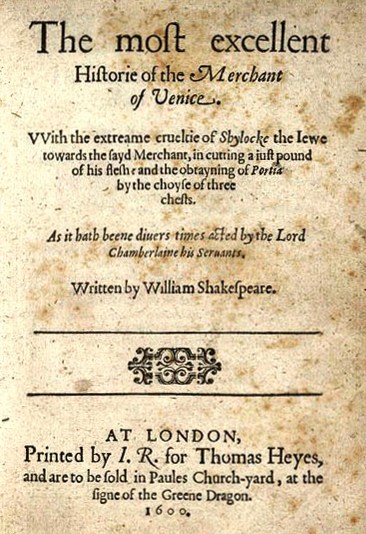 After discovering that Jacques Callot had illustrated a series of sketches of a troupe of dwarf actors and musicians known as Les Gobbi I naturally wondered "what connection might exist between this troupe and the characters of Old Gobbo and Launcelot Gobbo from The Merchant of Venice?" Though the possible connection certainly supports directors and dramaturgs to making some unconventional casting decisions, I confess that my speculation was not vigorously supported by the evidence, as Callot clearly made the illustrations long after the publication of The Merchant of Venice and I had no evidence as to how long the troupe had existed or if an earlier version of the troupe could have been known in England.
After discovering that Jacques Callot had illustrated a series of sketches of a troupe of dwarf actors and musicians known as Les Gobbi I naturally wondered "what connection might exist between this troupe and the characters of Old Gobbo and Launcelot Gobbo from The Merchant of Venice?" Though the possible connection certainly supports directors and dramaturgs to making some unconventional casting decisions, I confess that my speculation was not vigorously supported by the evidence, as Callot clearly made the illustrations long after the publication of The Merchant of Venice and I had no evidence as to how long the troupe had existed or if an earlier version of the troupe could have been known in England.
However, the Victoria and Albert Museum has in its collection a set of porcelain figures based on Callot's illustrations of Les Gobbi, and their website stated that these "grotesque dwarf entertainers" performed at the Medici court.
I checked the index of Pierre Louis Duchartre's classic work on the history of the commedia dell'arte, The Italian Comedy and found no reference to Les Gobbi, though other troupes of the era are mentioned. Of course Duchartre has some bizarre discomfort with the more vulgar elements of the commedia dell'arte, and might have been tempted to disregard a troupe who could be described as "grotesque" no matter how popular, even if, as the illustrations indicate, at least some of them were masked actors.
John Russell Brown, in his introduction to the Arden edition of The Merchant of Venice also notes that:
John Florio's Italian dictionary, A World of Words (1598), gave "Gobbo, crook-backt. Also a kind of faulkon."Though A World of Words was likely published after Shakespeare had composed and produced The Merchant of Venice there is some indication that even in England of the 1590s that "gobbo" was used as a term of derision for those with hunched or crooked backs, at least amongst those who had some passing familiarity with Italian. I know Shakespeare well enough to know that he did not shy away from vulgarity, or anything that our 21st century liberal ears would find too cruel to utter in polite society-- and certainly some of Callot's Gobbi are "crook-backt." Of course, there is also some possibility that Shakespeare and Florio were acquaintances and shared a fondness for insults.
Brown also offers the countering hypothesis that since the first quarto often renders "Gobbo" as "Iobbe" (spelling was not standardized back in 1600) that perhaps Shakespeare intended to provide an Italianized form of the Biblical Job. To me, this is doubtful, as the strongest Biblical allusion related to the Gobbi is that of Isaac and Jacob both in terms of Launcelot's tricking his blind father, as Jacob tricked his blind father, and Launcelot's prolific nature which is a somewhat comic parallel to Jacob's own fathering of the Twelve Tribes of Israel (and let us not forget the pun in the younger Gobbo's name: "Lance-a-lot.") If anything, the rendering as "Iobbe" should be taken less as a literary allusion than a hint for how the name should be pronounced on stage.
Knowing Shakespeare, and knowing that The Merchant of Venice was seen by his company and his audiences as a comedy, I'm more inclined to buy the idea that Shakespeare meant Launcelot Gobbo to be understood as "promiscuous crook-backed fellow" and not as some non-existent allusion to Job, the most tragic book in Jewish scripture.
Still, I have no evidence supporting the Callot connection, but given the utter silliness of Brown's Job hypothesis I am amazed I've not come across anyone else making a connection between Les Gobbi of Shakespeare and Callot.



No comments:
Post a Comment